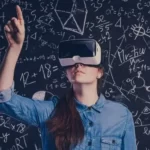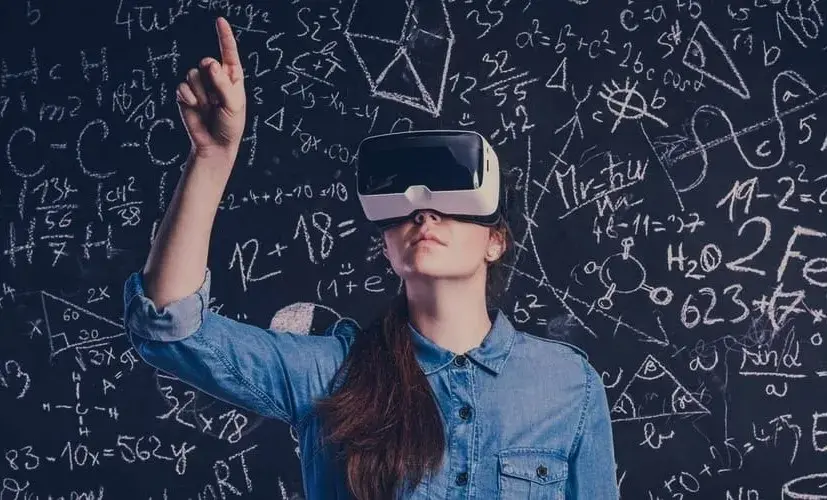ArdorComm Media Bureau
April 1, 2023
The world is constantly evolving and so are the ways in which we learn and teach. In the 21st century, the traditional education system has undergone a significant transformation with the advent of new-age teaching mechanisms that prioritize upskilling and empowering learners. In this blog, we will discuss some of these new-age teaching mechanisms and how they are changing the way we learn.
Personalized Learning
Personalized learning is a teaching mechanism that emphasizes the unique needs and interests of individual learners. Unlike traditional classroom settings, where every student is expected to learn at the same pace and in the same manner, personalized learning tailors the educational experience to the learner’s abilities and preferences. This mechanism allows learners to take control of their education, creating an environment that is conducive to their learning style.
Project-Based Learning
Project-based learning is an experiential learning approach that allows learners to apply theoretical knowledge to real-world scenarios. This teaching mechanism involves the creation of a project that challenges learners to solve problems, work collaboratively, and think critically. The projects are often multidisciplinary, incorporating various subjects and skills, which helps learners develop a broader understanding of the world around them.
Technology-Enabled Learning
Technology has transformed the education sector by enabling learners to access learning materials and resources from anywhere, at any time. Technology-enabled learning mechanisms include e-learning platforms, mobile apps, and virtual learning environments that offer interactive and engaging learning experiences. These mechanisms are particularly beneficial for learners who cannot attend traditional classroom settings due to geographical or logistical constraints.
Also Read: ArdorComm Media “New Normal – Education Leadership Summit & Awards 2023” #ELSAChennai #ELSATamilNadu
Lifelong Learning
Lifelong learning is a concept that emphasizes the importance of continuous learning and upskilling throughout one’s life. This teaching mechanism recognizes that in the fast-paced, ever-changing world we live in, learning should not stop once formal education ends. Lifelong learning mechanisms include online courses, workshops, and training programs that enable learners to acquire new skills and knowledge.
Collaborative Learning
Collaborative learning is a teaching mechanism that emphasizes working together in groups to achieve a common goal. This mechanism encourages learners to exchange ideas, solve problems, and learn from one another. Collaborative learning can take place in various settings, such as group projects, discussions, and peer-to-peer learning. It promotes social skills, critical thinking, and teamwork, which are essential skills for success in the 21st century.
Gamification
Gamification is a teaching mechanism that uses game elements and principles to engage learners and motivate them to learn. This mechanism incorporates elements such as points, badges, leaderboards, and challenges to create a fun and interactive learning experience. Gamification can be applied to various learning scenarios, such as language learning, math, science, and even corporate training. It promotes learning through play, which makes the learning experience more enjoyable and memorable.
Also Read: Digital-First Education: How Robust Infrastructure is Shaping the Future of Learning
Flipped Classroom
The flipped classroom is a teaching mechanism that involves reversing the traditional classroom model. Instead of lecturing during class time, learners are given pre-recorded lectures or readings to watch or read before class. Class time is then used for discussions, activities, and problem-solving, allowing learners to apply what they have learned. The flipped classroom mechanism promotes self-directed learning, critical thinking, and collaboration.
Microlearning
Microlearning is a teaching mechanism that involves delivering small, bite-sized learning modules to learners. This mechanism is designed to accommodate the short attention span and busy schedules of learners in the 21st century. Microlearning modules can be delivered in various formats, such as videos, podcasts, infographics, and quizzes. It promotes personalized learning and allows learners to learn at their own pace.
Conclusion
In conclusion, the new-age teaching mechanisms discussed in this blog are empowering learners by providing them with engaging, personalized, and effective learning experiences. These mechanisms promote critical thinking, collaboration, social skills, self-directed learning, and upskilling. As we continue to embrace these teaching mechanisms, we can create a more inclusive and effective education system that meets the diverse needs and interests of learners in the 21st century.
The author, Pratik Ghosh is associated with ArdorComm Media


